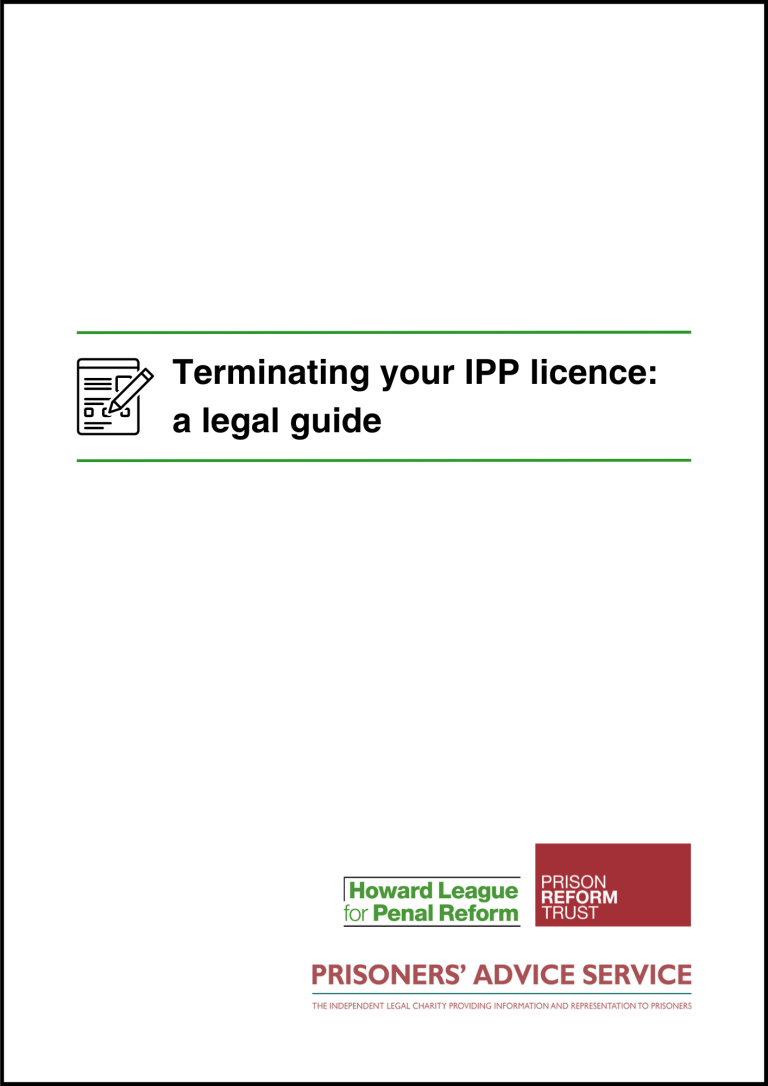The Indeterminate Sentence for Public Protection (IPP) sentence was introduced in 2005, alongside a parallel indeterminate sentence for children, called the DPP sentence. 8,711 IPP and DPP sentences were imposed before the sentence was abolished in 2012. Abolishing the sentence meant that no new IPP sentences could be given, but everyone already sentenced under an IPP sentence remains subject to the sentence.
Having an IPP sentence means:
- Serving a tariff or minimum term in custody before applying to the Parole Board for release.
- Once released, being on an indeterminate licence, under supervision by probation and at risk of recall to custody for breach of any of the licence conditions.
Unlike other indeterminate sentences, the IPP licence can be terminated which means all the conditions are removed and cannot ever be re-imposed, and recall cannot be initiated – in effect, an individual is no longer serving a IPP sentence.
In May 2024, ground-breaking changes to the law on how IPP licences can be terminated were approved by Parliament in the Victims and Prisoners Act 2024. Read more about the changes here.
It has been announced that the changes come into force in two phases, the first on the 1 November 2024 introduces an automatic termination of licence after a qualifying period. The second phase commences on the 1 February 2025 and will reduce the length of the qualifying period before a licence is reviewed by the Parole Board.
The provisions are complex. To help those serving IPPs, and their family and friends understand the position for them, the Howard League, together with Dr Laura Janes, the Prison Reform Trust and Prisoners’ Advice Service, have prepared a practical ‘how-to’ guide. The legal guide explains when and how a person serving an IPP or DPP sentence can get their licence terminated. The guide was updated in September 2024 to reflect the announcement re commencement dates for the Victims and Prisoners Act 2024.
-
Join the Howard League
We are the world's oldest prison charity, bringing people together to advocate for change.
Join us and make your voice heard -
Support our work
We safeguard our independence and do not accept any funding from government.
Make a donation
